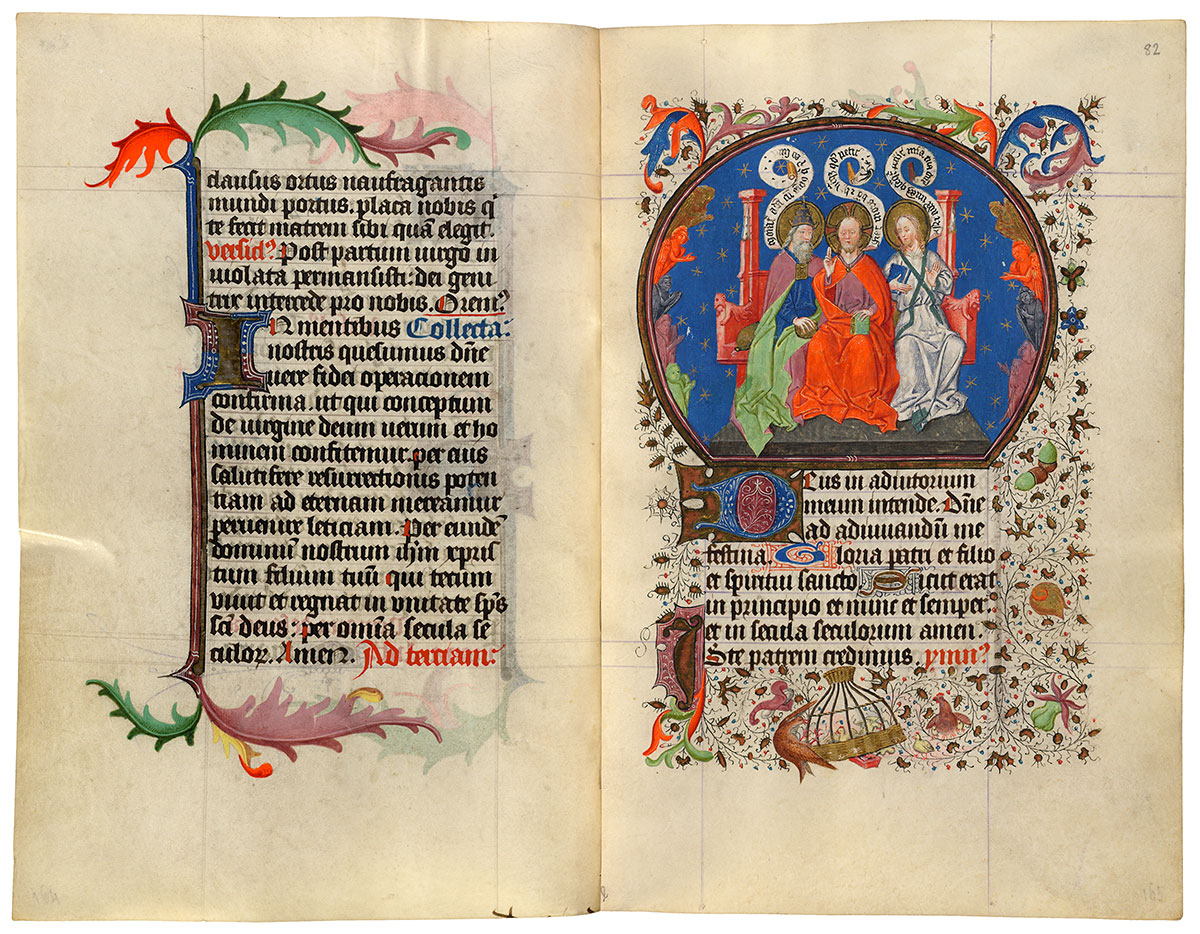
Three Persons of the Trinity
Purchased on the Belle da Costa Greene Fund with the assistance of the Fellows and with special assistance of Mrs. Frederick B. Adams, Sr., Mrs. Robert Charles, Mr. Laurens M. Hamilton, The Heineman Foundation, Mrs. Donald F. Hyde, Mrs. Jacob M. Kaplan, Mrs. John Kean, Mr. Paul Mellon, Mr. and Mrs. Charles F. Morgan, Mr. Lessing J. Rosenwald, Mr. and Mrs. August H. Schilling, Mrs. Herbert N. Straus, Mrs. Landon K. Thorne, Mrs. Alan Valentine, Mr. and Mrs. Arnold Whitridge, and Miss Julia P. Wightman, 1970
The Three Persons of the Trinity sit on a throne floating in a starry sky surrounded by representatives of the nine choirs of angels. Scrolls give words to their debate. God the Father argues that "Adam will die with all those who are from my tribe." The Holy Spirit advocates compassion: "If Adam does not achieve mercy, then your mercy, Lord, will perish." Accepting his sacrificial role, Christ has the last words: "May it be a good death, and may he obtain what he requests."
Hours and Masses for the Seven Days of the Week
The most unusual texts in Catherine's manuscript are the series of Hours and Masses for every day of the week. Medieval Christian tradition associated certain figures or themes with different days. Thus Sunday, the day of the Resurrection, was the Lord's Day; Thursday was connected with the Eucharist since that sacrament was instituted on Holy Thursday; and Monday was the day of the dead, since their torments were suspended on Sunday but recommenced the following day. In Catherine's prayer book, the themes for the Hours and Masses of the seven days of the week are:
| Sunday | the Trinity |
| Monday | the Dead |
| Tuesday | the Holy Spirit |
| Wednesday | All Saints |
| Thursday | the Blessed Sacrament |
| Friday | the Compassion of God |
| Saturday | the Virgin. |
Image courtesy of Faksimile Verlag Luzern
